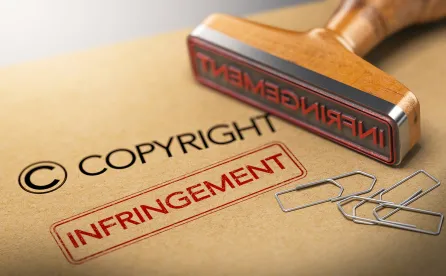The US Court of Appeals for the Sixth Circuit affirmed an award of profit disgorgement and attorneys’ fees in a copyright infringement case, holding that even “workaday” or “humdrum” subject matter can support a valid copyright. Premier Dealer Servs. Inc. v. Allegiance Adm’rs LLC, Case No. 23-3394 (6th Cir. Feb. 26, 2024) (Sutton, C.J.; Clay, Bloomekatz, JJ.)
Premier and Allegiance both administered car dealers’ loyalty programs. Customers enrolled in these programs were required to meet certain conditions (such as changing the car’s oil at predetermined intervals), and if a part under warranty broke, the dealer would help the car owner initiate a claim through the loyalty program administrator. In conjunction with administering these programs, Premier created a loyalty certificate. The certificate collected the customer’s personal information and provided the program’s terms and conditions. Premier registered its certificate for copyright protection in 2008.
In 2018, Tricolor – one of Premier’s large, long-standing customers – switched its program to Allegiance. When Allegiance took over, it repurposed Premier’s loyalty certificate by simply updating the administrator’s contact information. Allegiance and Tricolor continued to use the otherwise unaltered certificate. Premier sued for copyright infringement.
The district court found that the certificate’s “dull” subject matter did not preclude copyright protection, enjoined Allegiance from further copyright infringement, and awarded Premier disgorgement of Allegiance’s profits as well as attorneys’ fees, totaling more than $1 million. Allegiance appealed, challenging the certificate’s copyrightability and the damages calculations.
As to the copyrightability of the certificate, the Sixth Circuit explained that while copyright requires originality, it is a low threshold that can be shown by making “non-obvious choices” or evidencing some creative spark. “[A]rtistic merit” is not necessarily required. The Court noted three categories that copyrights will not cover:
- Facts that already exist in the world (although the expression of facts may be copyrightable)
- Merger, “when there is only a single way to express a given set of facts” and
- Scenes a faire, in which industry norms require expressing facts in a particular way.
Premier’s copyright was registered and therefore presumed valid, meaning the burden was on Allegiance to rebut that presumption. The Sixth Circuit rejected Allegiance’s challenge to the originality of Premier’s copyright, primarily because copyrights “protect all manner of works – mundane or lofty . . . so long as they satisfy the modest imperatives of originality.” Allegiance argued that Premier’s forms collected client information in a way that was unoriginal, because there was only one way to collect the information (merger) and because the layout was typical for the industry (scenes a faire). The Court looked to areas in which Premier indicated creativity, noting that its forms differed from other loyalty program certificates in evidence. Further, Premier made the creative choice to allow program members to select from various schedules for oil changes, instead of a single predetermined timetable. This and other evidence suggested choice, ideas and creativity, despite the functionality of the loyalty certificates.
The Sixth Circuit hinted at how Allegiance might have better established the originality threshold (i.e., by introducing probative evidence). The Court noted that Allegiance failed to submit industry insider or expert witness testimony or affidavits. Although Allegiance also pointed to extrinsic evidence that was not in the record and raised new legal theories that were available at the time of summary judgment, the Court found this waived on appeal. This lack of record evidence was insufficient to rebut the presumption of validity.
Allegiance also challenged the damages award. Again, a burden shift was at play: A copyright owner need only show the infringer’s gross revenue, whereupon the burden shifts to the infringer to show what portion of the profits did not result from the infringement. Premier met its burden by calculating gross revenues for Allegiance’s infringement using the loyalty certificate. The district court deducted reasonable costs and ignored Allegiance’s arguments that did not go to Allegiance’s burden of calculating deductions. The Sixth Circuit noted that Allegiance’s argument that Premier should have had to link Allegiance’s revenue to the text of the infringed certificates was “ask[ing] too much of Premier,” since it is the infringer’s job to prove causation after the burden shifts.
Finally, the Sixth Circuit held there was enough evidence of record to support the district court’s discretionary grant of attorneys’ fees. For instance, the district court found that Allegiance had made arguments that were contrary to court precedent and had made unreasonable “‘late hour’ challenges to the summary judgment decision.” The Sixth Circuit agreed with the district court that an injunction alone may not be enough to effectively deter Allegiance, given that it had continued to infringe throughout the litigation “and had suggested that it would keep doing so.”




 />i
/>i

